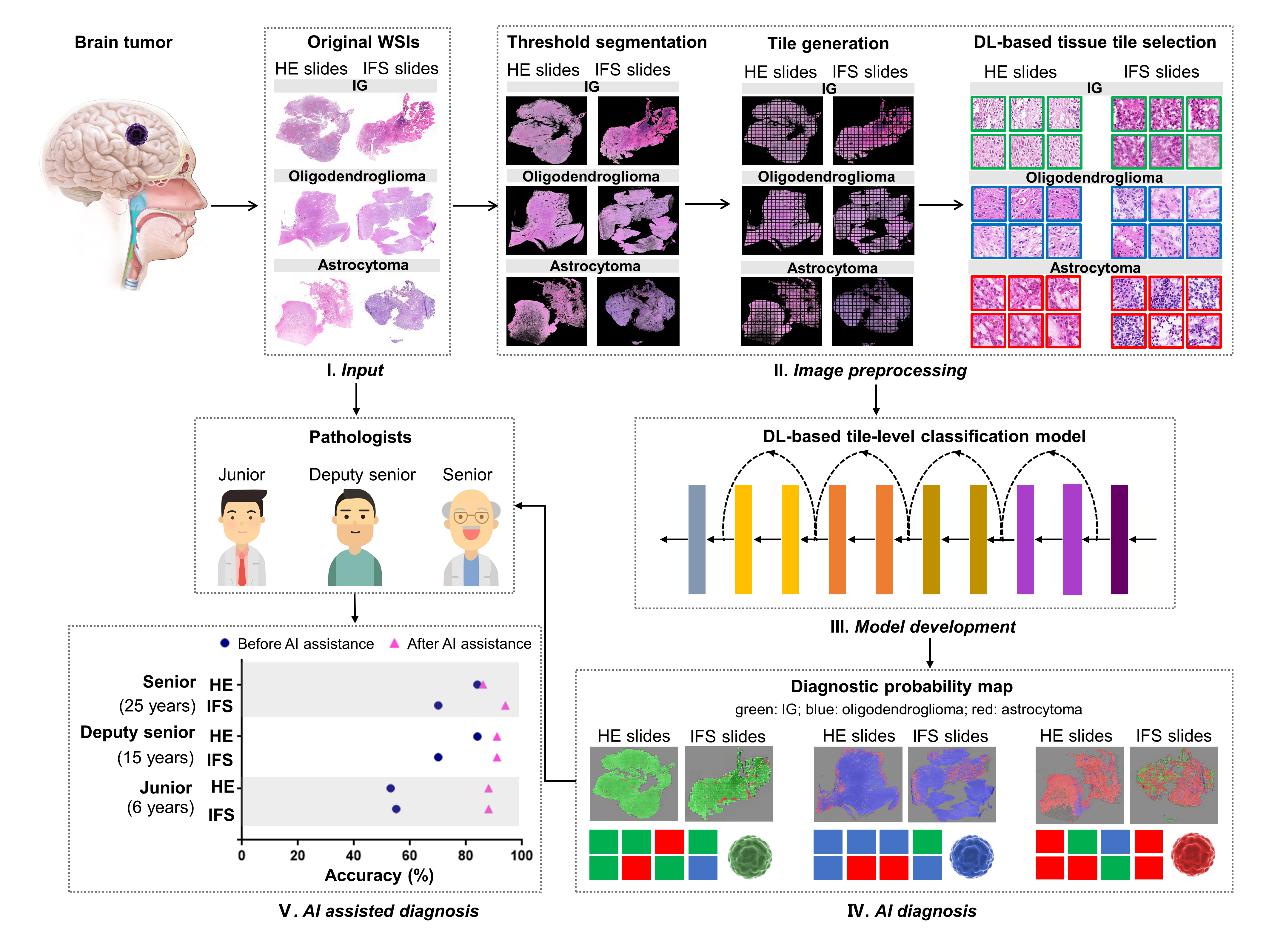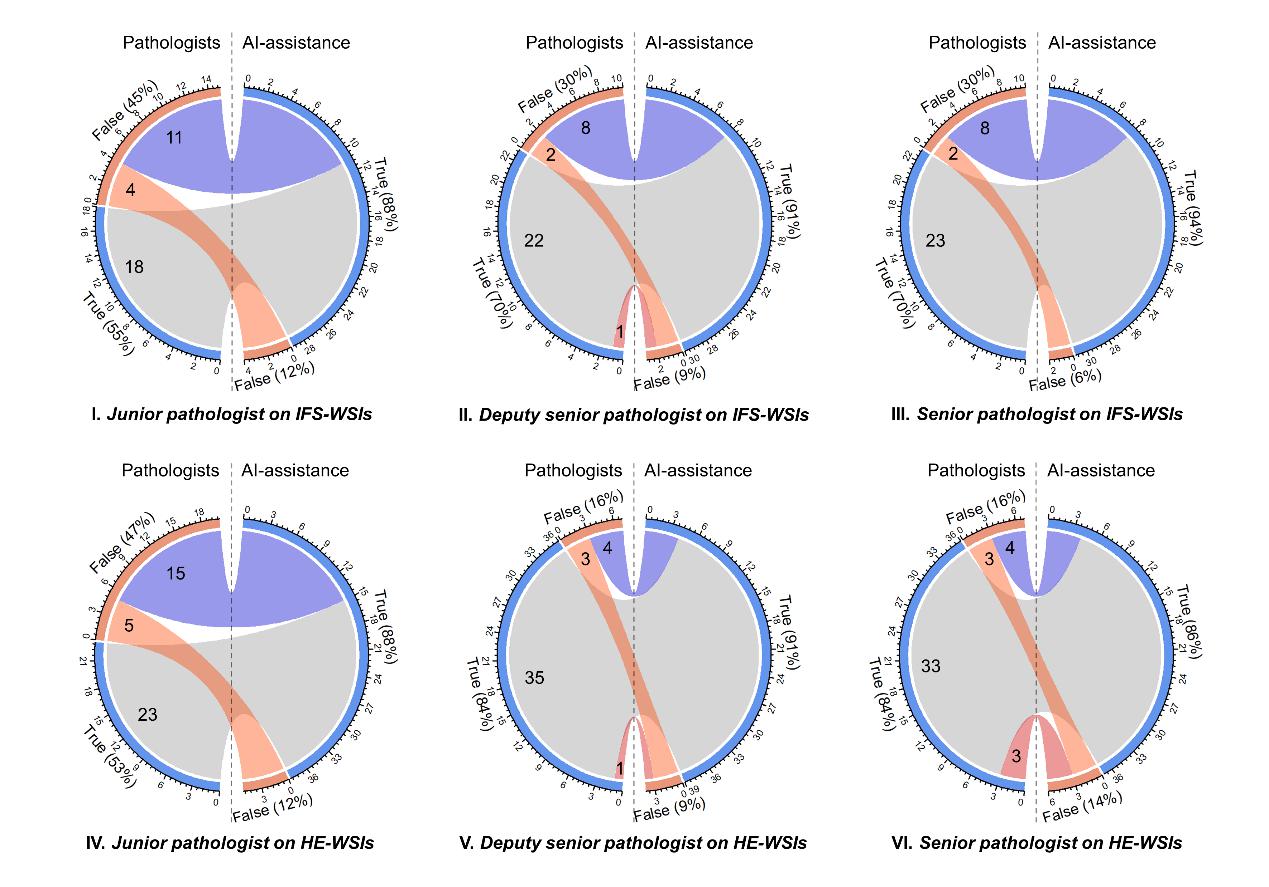
A research team from the Suzhou Institute of Biomedical Engineering and Technology (SIBET) of the Chinese Academy of Sciences, in collaboration with researchers from the Xiangya Hospital of Central South University, has proposed an artificial intelligence (AI)-based automatic diagnosis model for central nervous system (CNS) tumors.
The study was published in Brain Pathology.
More 308,102 new cases of CNS tumors were diagnosed worldwide in 2020, and about 251,329 ended up with cancer-related deaths. Astrocytoma, oligodendroglioma, and intracranial germinoma (IG) are three of the most common CNS tumors.
"Their treatment strategy and prognosis vary greatly," said SHI Liting, first author of the study. "Misdiagnosis leads to unnecessary resection of IG, which may disrupt the balance between different neurological functions and the extent of craniocerebral resection, as well as insufficient removal of astrocytoma or oligodendroglioma, which may increase the risk of recurrence."
Accurate diagnosis of IG, oligodendroglioma, and astrocytoma has been mainly based on three types of examinations: intraoperative frozen section (IFS) pathological examination, hematoxylin and eosin (HE) staining pathological examination, and molecular detection.
Intraoperative and postoperative treatment plans for astrocytoma, oligodendroglioma, and IG mainly rely on the pathological diagnosis using IFS and HE in clinical practice.
However, due to the similarity in cellular morphology among these three types of intracranial tumors, even experienced pathologists cannot accurately differentiate the three tumors solely based on IFS and HE staining alone, with an accuracy of only 54.6%-69.7% and 53.5%-83.7%, respectively.
Based on deep learning methods, GAO Xin, lead researcher of the study, together with his team, used transfer learning strategies and weakly supervised learning to construct an image patch diagnostic model that accurately calculates the tumor probabilities of image patches and achieves quantitative interpretation of tissue pathology slides.
The model adopts intelligent computational framework to perform fully automated analysis of digital IFS and HE whole slide imaging (WSI). The study included a total of 379 patients from three Chinese hospitals and The Cancer Genome Atlas (TCGA) public dataset, with 500 IFS WSIs and 832 HE WSIs.
Results showed that the proposed IFS and HE models achieved internal validation accuracies of 93.9% and 95.3%, respectively, and external validation accuracies of 82.0% and 76.9%, respectively.
The researchers also integrated the diagnostic results of all image patches into WSI-level diagnostic probability maps, which can assist pathologists in pathological diagnosis.
In addition, the team innovatively used the diagnostic probabilities of the model to predict the positive cell area of Ki-67, a widely used tumor marker, thereby bridging the gap between cellular structural images and protein expression levels.
The proposed models could predict the positive cell area of Ki-67, with coefficient of determination (R-squared, R2) values of 0.81 and 0.86, respectively, according to the researchers.
This study explores and validates the clinical application potential of artificial intelligence technology. "The models can assist clinical doctors in providing optimal and timely treatment choices for patients, thus providing new theoretical basis and methods for improving the current status of brain tumor diagnosis and treatment," said GAO Xin.

The workflow of the analyses performed in this study. (Image by SIBET)

The chord diagrams show the corrective effect of AI assistance for pathologists. The left and right sides of the circle represent the diagnosis without and with AI assistance. The orange and blue rings represent the incorrectly and correctly diagnosed patients that were included in the false and true groups, respectively; the connecting bands between the left side and the right side represent patients moving from one group to the other group with AI assistance. (Image by SIBET)

86-10-68597521 (day)
86-10-68597289 (night)

52 Sanlihe Rd., Xicheng District,
Beijing, China (100864)

